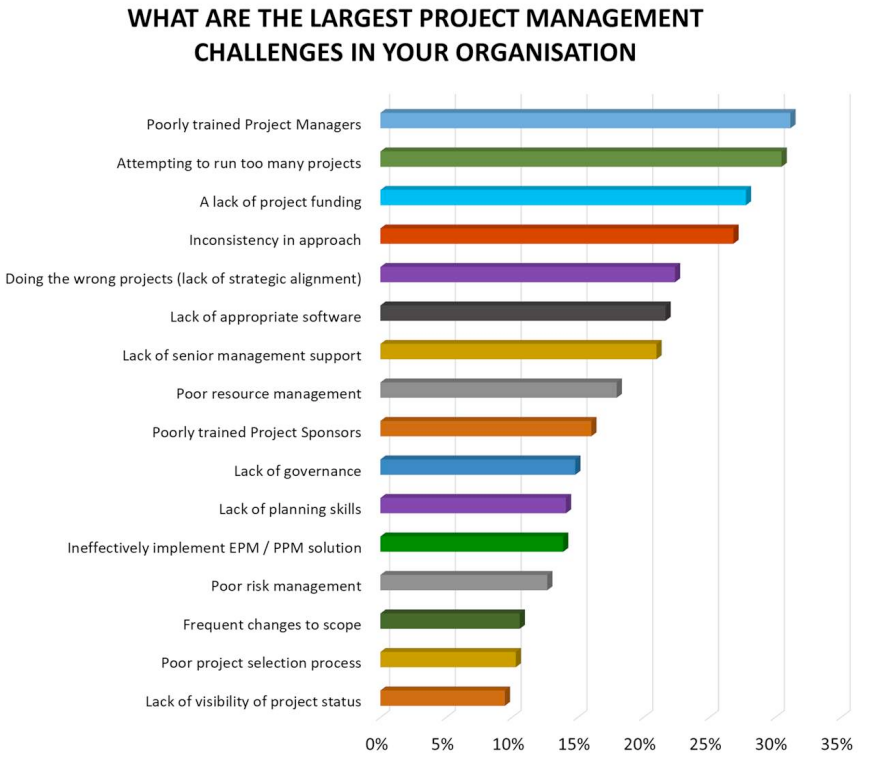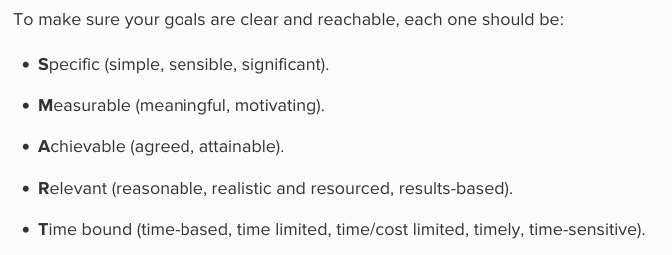4 Ways to Nail Project Management for Digital Marketing
This article explains how to nail project management for digital marketing
Marketing project management is necessary to improve a marketing team's performance and keep customers happy. Marketing project management also allows individuals involved with various projects to understand their tasks and improve the way they work.
Of course, this tactic has many components that benefit both parties involved - the people who comprise your marketing team and the customers themselves. It allows your brand to improve its reporting and metrics and helps cross-team collaboration.
But let's take it from the top.
Marketing Project Management: A Definition
Marketing project management can help your digital marketing projects scale through careful planning and specific deliverables for each one. The project manager, team leader, or project owner is responsible for creating a framework that will work for each of your brand's endeavors, helping teams keep specific deadlines and creating actions within a specific budget.

(Source)
This means that for every project, the owner or manager will have to create defined frameworks and plan actions specifically while following a timeline and leading teams from detailed steps to specific project deliverables. A deliverable is the end result.
As far as each project is concerned, it's divided into sub-categories, and each task is allocated to a person or group of people responsible for reaching each milestone. For example, a digital marketing campaign will require social media campaigns, perhaps a dedicated blog post, and an email marketing platform that will enable them to create an email marketing campaign.
These three tasks require a team that will consist of a variety of people or groups:
-
The designers will handle the visual aspects of the digital marketing campaign with original designs for social media posts and free responsive email templates that will boost the email campaign’s CTR.
-
Social media managers will create social media campaigns.
-
Finally, content writers will take on social media and email copywriting, using wording and contexts that are niche-specific and tied to the project at hand.
Of course, each project differs from the next, so the project manager needs to clarify each effort's objectives. There's a considerable difference between rebranding, email onboarding, SEO, or content marketing activities.
To decide each digital project's reasons, budgets, and goals, marketing project managers must research and consider their existing data before determining the steps that will lead to the result. For example, if a SaaS brand needs to deliver a new feature to the public, a marketing project manager will need to conduct research, segment customers, and see what their data point to: are the customers interested in that new feature, or would they prefer to see something different?
Data will also point to the budget spent and the general ROI of this marketing action. Will it be successful? Would it fit the needs of the brand? Will it need discovery phase services? If the project is costlier than its expected ad ROI and conversion rate, perhaps it's not the one the brand needs at that point.
The Role of a Marketing Project Manager
When it comes to marketing project management for digital marketing campaigns, a project manager will have to take up various duties. It's a marketing project manager's job to be precise, create workflows that make sense, and be reasonable with the timelines and execution.
Their duty also consists of allocating tasks efficiently and ensuring the projects are completed in the correct order to create the bigger picture or campaign. Let's assume that a project consists of PPC campaigns to advertise a new feature, presenting social media work, creating a sensible onboarding, and urging users to subscribe to a newsletter through a dedicated landing page and an interesting call-to-action. In that case, a marketing project manager will have to ensure these tasks are completed in the right order and that the teams responsible for those tasks have all the resources to do so,
To manage the above tasks, a marketing project manager who will elevate your brand's digital marketing efforts must be a great communicator with attention to detail. Still, there's more to the skills required.
Clear, precise deadlines, the ability to resolve conflicts and disagreements, a strong sense of ownership and leadership are required, and a great idea of the subject matter and time-management skills.
Marketing project managers have to have strategic thinking and be tech-savvy as well. But without clear project management steps, reaching specific targets is difficult, even for the most experienced project managers.
Marketing Project Management: The Project and Teams Involved
Planning a marketing project requires other soft skills, like insight, knowledge of the subject matter and the necessary resources, some expert project management tools, and setting attainable and logical goals.

(Source)
The first step of a marketing project is to establish your goals. So, what is it that you're trying to achieve? How realistic and attainable is your objective? Whether it’s going to make an impact, or it’s there to satisfy some underused customer segments, make sure it’s not just a stepping stone towards a general direction but something worthwhile.
Also, is your objective time-bound? Is your timeframe realistic? How are the deadlines correlated to each step of the way? Remember that every project is different, and you will need to be clear and precise when setting your goals.
Lastly, what is the project at hand? Who is going to be involved? What is a realistic timeframe for this project?
Answering those questions means that a marketing project manager is ready to communicate the different parameters of the project to the teams involved and allocate tasks accordingly.
Of course, the project's parameters are not done here. The deliverables will determine the objectives. In turn, through the objectives, a marketing project manager is called to define the project's KPIs that will be measured in the end.
This type of planning allows marketing project management for digital marketing campaigns to be specific with goals that will be attainable and logical, as each action needs to be a natural continuation of the previous one.
The above components can create solid foundations for marketing projects - with or without digital aspects - and give the teams, and people involved some necessary clarity. This, in turn, will help them proceed with well-thought-of and calculated strategies.
Be Clear About Your Project's Resources
Resources could be anything from the right people at the right positions, up to the budget the project requires, the tools that could get you right where you want, and perhaps other things like training courses or seminars that will help the professionals involved make the idea work.
The first thing to do at this stage would be to organize the type of software you would like to use. For example, suppose your marketing project is a new digital campaign for your small-medium business. In that case, you will need to come up with using platforms like social media management tools and marketing automation that will promote your SMB email marketing efforts. That way, you will save time and energy and invest in assets for various actions.
Ensure that the tools you will use will be valuable down the line. Analytics, reports, and online keyword tools that will boost your SEO efforts are all useful; however, you can't invest in something that will be a one-off deal that you won't use in the future. This is why you need to look at your existing assets first. Perhaps an old project will carry workflows and templates that will work this time as well - maybe with little adjustments here and there. You don't need a new tool for each project you come up with.
Also, reusing old resources rather than looking for new ones each time a new project comes up will help you save time - mainly from testing new tools - and, of course, budget. Not to mention how it will save your team's efforts as well. After all, they will be the ones required to learn new tools each time.
So, first, take a look at your existing resources. Ensure that you can use them for your next project. After that, make sure you've got some workflows into place that you can slightly change to help your team reach its goals.
Create a Marketing Strategy That Makes Sense
Despite the project management tools that you may be using, it's up to the marketing project manager to know the desired ROI, the KPIs of each project, and whether or not the goals were SMART and correctly executed.
A marketing team cannot make decisions without the project manager being aware. Whether we're talking about growth strategies that will last beyond the marketing project itself or about tools and actions, a marketing project manager is the one to coordinate these decisions.
So, where is your marketing project's focus? Is it brand awareness? If so, you will need a robust digital marketing campaign with PPC, email newsletters, social media campaigns, and some clever SEO planning.
On the other hand, if you need to boost your lead generation efforts, you will need to develop a clever landing page and subscription form strategy, complete with targeted content and an email onboarding sequence.
Whatever your end goal is, just remember that this is what will define your marketing strategy and not the other way around. After that, marketing project management will require a detailed distribution of the deliverables that will define your campaign.
Each of those deliverables will need to be live according to a specific timeline, meaning you must be transparent with your scheduling. This transparency must include how flexible you can be and how much a timeline change could cost.
Of course, when creating tasks and campaigns for your marketing project, you must be clear on the tasks each team is responsible for. This will help you manage the project better, avoid duplicate work, and understand the chain that links each team with the next.
Collaboration and Ownership
Marketing project management needs many teams and people to be involved. A marketing action as simple as a giveaway requires the involvement of the PR team, a designer, a copywriter, and some SEO magic.
After that, it needs proper distribution through a dedicated Social Media team. Getting so many individuals and teams to collaborate and keep up with deadlines and deliver on-schedule can be a hassle without great workflows and software:

(Source)
This is why ownership is essential here. Of course, a marketing project manager will be the first and only individual that will fine-tune each marketing action and distribute the roles to each team. But this doesn't mean that every team member isn't responsible for their actions.
As a marketing project manager, you need to allow open dialogues between your team members and encourage clear and honest communication. That way, you'll encourage each individual to be responsible for their part and reach the end goal smoothly and seamlessly.
After the Success
Marketing project management aims to create digital campaigns that will bring success to the brand, the clients - if we're talking about a digital agency - and the teams involved. And often, marketing project managers can make that happen. But can they replicate the results, learn, and use their new skills for future projects?
Apart from using task management software, marketing project managers need to understand the results and learn how to replicate them. So, marketing project management requires results-oriented monitoring. Real-time analytics and platforms that can create automated reports are what you'll need to understand how you reached point B from point A. Such tools and reports will allow you to make informed decisions and not guestimates and understand what kind of adjustments you'll need to make for your future campaigns.
And once you find the top-performing marketing project, replicate the results for your future campaigns. For example, if a specific age group performed better than a different one, try to target this group for your future projects.
The Takeaway
Marketing project management is nothing without proper communication and execution. Marketing project managers need to be clear and precise with the team members but ready to take risks and listen to criticism.
Not monitoring data, validating parameters through information, and performing check-ins with your team will lead your marketing project towards failure. On the other hand, informing each team about the milestones reached and having transparent and specific workflows can boost your marketing project's performance and lead to the desired result.
Author Bio:

Téa Liarokapi is a Senior Content Writer for Moosend, an email marketing and marketing automation platform, and an obsessive writer in general. In her free time, she tries to find new ways to stuff more books in her bookcase and content ideas - and cats - to play with.